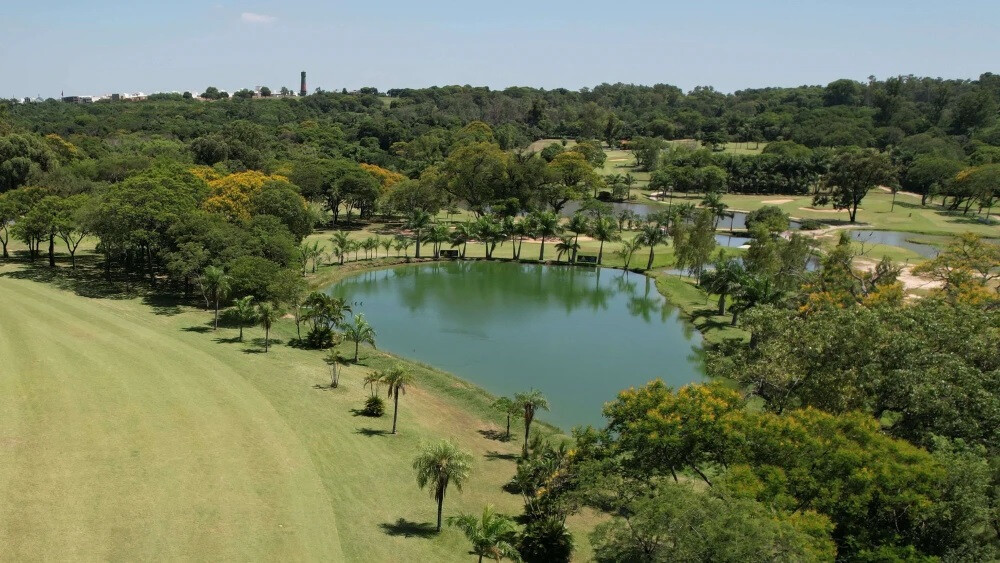
ASUNCIÓN, PARAGUAY – Organized citizen groups have submitted a letter to the Municipal Council opposing an attempt by Mayor Óscar "Nenecho" Rodríguez to transfer 46 hectares of the Asunción Botanical Garden to the Asunción Golf Club. Citizens argue that such an action violates laws, ordinances, and international agreements that protect the natural and cultural heritage characteristics of the deteriorated site. The document was submitted to the Municipal Council's reception desk last Tuesday, and this matter, pushed amid the Asunción mayor's financial difficulties, is generating significant public backlash.
"Any decision to transfer the right to use part of the Asunción Botanical Garden and Zoo grounds, as intended by the Municipal Executive, is considered entirely inappropriate and illegal," the letter states. Opponents of this transfer include members of the 'Friends of the Asunción Botanical Garden' group, who on April 8 requested a report from the Ministry of Public Works and Communications (MOPC) on the compensation projects included in an agreement signed with the Asunción Municipality. This agreement, signed on June 21, 2017, includes a compensation and restoration program for the construction of a road corridor within the Botanical Garden, but to date, there are no signs of improvement at the site. The Director of the Botanical Garden, Maris Llorens, stated that compensation measures are still awaited.
Matilde Schaerer, a member of the 'Friends of the Asunción Botanical Garden,' emphasized in an interview with local media that the Asunción Golf Club must vacate the Botanical Garden grounds it occupies. This is based on Article 134 of the Municipal Organic Law (Ley Orgánica Municipal, art. 134), which stipulates that spaces for public purposes, such as squares, parks, streets, and avenues, cannot be transferred to private individuals.
This article was amended by Law No. 6101 in 2018, further clarifying the definition of public property. "Although the Botanical Garden Master Plan stated that transfers were possible, this was superseded by a 2010 law. Since it explicitly states that public spaces cannot be transferred to private individuals, immediate eviction should have taken place," Schaerer added.
The document submitted to the Municipal Council this Tuesday specifies that the natural and cultural heritage characteristics of the site are protected by various legal norms, including constitutional-level regulations, international treaties, laws, and municipal ordinances. Among the cited norms is Article 81 of the Constitution, which prohibits "inappropriate use and actions that degrade natural characteristics, destruction," and "malicious alteration" of real estate. Also mentioned is Law No. 1231/86, which approved and ratified the 'Convention Concerning the Protection of the World Cultural and Natural Heritage.' According to the document, the restoration and preservation of the Botanical Garden are guaranteed by UNESCO principles and documents, and various UNESCO recommendations since 1962 must be respected.
The document points out that "the Asunción Golf Club filed a usucapión (adverse possession) claim, but state-owned land, i.e., public land, cannot be acquired by usucapión. It was a lawsuit destined to fail from the outset, and they lost at every instance. However, the municipal authorities have not taken action to evict them." Meanwhile, the Asunción Golf Club was established in 1926, and its occupation of the golf course within the Botanical Garden is said to have begun approximately 50 years ago. In a legal battle that began in 2000, the golf club claimed adverse possession, but the courts ruled in favor of the citizen groups, clarifying that the land is public property.
"That club must be evicted. It must be returned to the Botanical Garden for the use of all citizens. It is public property, yet it has been privatized," Schaerer added. Among the norms mentioned in the letter is Article 21 of Law No. 5621/16, the 'Law on the Protection of Cultural Heritage,' which prohibits the demolition, destruction, or alteration of cultural heritage without the approval of the Ministry of Culture. Ordinances No. 28/96 and No. 35/96 were also cited, stating that the entire Botanical Garden site is included in the "List of Cultural Heritage Buildings and Places" mentioned in Ordinance No. 35/96.
Furthermore, General Directorate of Culture Resolution No. 38/2001 designated former President Carlos Antonio López's 'Casa Alta' and 'Casa Vianna' (Casa Baja) as cultural and architectural heritage, both located within the Botanical Garden. According to the document signed by citizens, "the Municipal Executive's proposed transfer of the right to use the site not only fails to align with the general and specific objectives of the site management plan but rather violates them," drawing attention to Ordinance No. 81/98, which regulates the Botanical Garden's management and use master plan. Article 3 of this plan stipulates that projects undertaken on the site "must conform to the criteria of preservation, conservation, and activation of the place."
In addition to these regulations, Comptroller General's Resolution No. 474/07, through a "special audit of the Asunción Municipality's management of the Botanical Garden," warned of the "successive losses suffered by the site due to occupation and dismantling," concluding that the municipal authorities must comply with the master plan to "integrate" the site, considering that "the lost space is lost space for all citizens."
[Copyright (c) Global Economic Times. All Rights Reserved.]




























